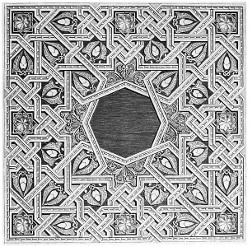I Workshop on Applications of Artificial Intelligence for Industry 4.0

In the last years the industrial sector has evolved gradually towards the massive digitalization of its products and processes. The huge amounts of digital information – captured by sensors deployed over diverse areas of industrial plants – have paved the way to unprecedented opportunities to enhance their productivity by virtue of the knowledge and value embedded in the data themselves. Just like the so-called Internet of Things, Cloud Computing and Big Data architectures have enabled the efficient fusion, storage and retrieval of heterogeneous data, Data Science has finally found in Industry the digital substrate required to solve problems of undoubted business value for the sector, such as predictive maintenance, the prediction of product defects in production time, optimized inventory/stock management and the digital replication of industrial systems and processes (from where the “digital twins” concept emerges). It is not in vain that Data Science is widely conceived as one of the technological pillars on which the Industry 4.0 stands, in essence, an intelligent industry built upon smart components (systems, products and processes) where both the physical world and the digital realm meet each other.
Despite the sharp proliferation of success histories of Data Science in the industrial domain, research paradigms still prevail in several aspects, not only those related to the characteristics of data, but also those linked to the particularities of the industrial sector itself. Factors like the economical viability of the implementation and deployment of data-based models, the acceptability of working staff with regards to the inclusion of decision support systems to their working routine, the interpretability of models or the usually poor quality level featured by industrial data are of utmost relevance for Data Science to become a competitive operational asset in this sector. Moreover, these factors increment the inherently high complexity yielded by the technical challenges posed by the underlying modeling, such as the fusion of heterogeneous data in multi-sensor, multi-channel monitoring of industrial machinery, learning over severely imbalanced datasets or the classification/prediction/clustering of multivariate time series.
The first edition of the IndustrIA 4.0 workshop aims to gather researchers and practitioners working on the design of advanced Artificial Intelligence, Data Science and optimization techniques, with an emphasis on their application to industrial and manufacturing problems. IndustrIA 4.0 unleashes a pioneering occasion in Spain to disseminate high-quality theoretical and practical works in the above subjects, with the ultimate goal to foster the exchange the ideas and create synergies among the attendees to the workshop.
Chairs
- Javier Del Ser, TECNALIA, University of the Basque Country, Basque Center for Applied Mathematics, Email: javier.delser@tecnalia.com
- Jose Antonio Lozano, University of the Basque Country, Basque Center for Applied Mathematics, Email: ja.lozano@ehu.es
Granada
La industria de Granada es su belleza - Paolo Marconi
Topics
Topics of interest for IndustrIA 4.0 include, but are not limited to, the following:
- Applications of Artificial Intelligence, Data Science and optimization to:
- Predictive maintenance
- Condition-based monitoring (CBM)
- Predictive detection of faults, errors and defects
- Demand prediction and inventory/stock/logistics optimization
- Automated quality inspection of product/process
- Resource-constrained production scheduling
- Industry 4.0 and energy, including energy efficiency in production
- Cybersecurity in industrial systems and processes
- Industrial communications
- Human-Machine Interaction (HMI) and augmented/virtual reality for industry
- New intelligent models for knowledge discovery and optimization in Industry 4.0
- Other applications of intelligent data-based models and optimization techniques to industrial sectors
All submissions misaligned with the thematic priority of the Workshop (IndustrIA 4.0) will be forwarded to other CAEPIA events.
Program Committee
| Researcher | Institution |
|---|---|
| Sergio Gil-López | TECNALIA |
| Aritz Pérez | BCAM |
| Sancho Salcedo-Sanz | University of Alcalá |
| Iñaki Inza | University of the Basque Country (UPV/EHU) |
| David Camacho | Autonomous University of Madrid |
| Jesús Para | University of Mondragón |
| Antonio J. Nebro | University of Málaga |
| Jose Manuel Garcia-Nieto | University of Málaga |
| Miren Nekane Bilbao | University of the Basque Country (UPV/EHU) |
| Urko Zurutuza | University of Mondragón |
| Diego Galar | TECNALIA & Luleå University of Technology |
| Jonathan Ortigosa | GESTAMP |
| Miguel Angel Veganzones | NEM Solutions |
 CAEPIA
CAEPIA

